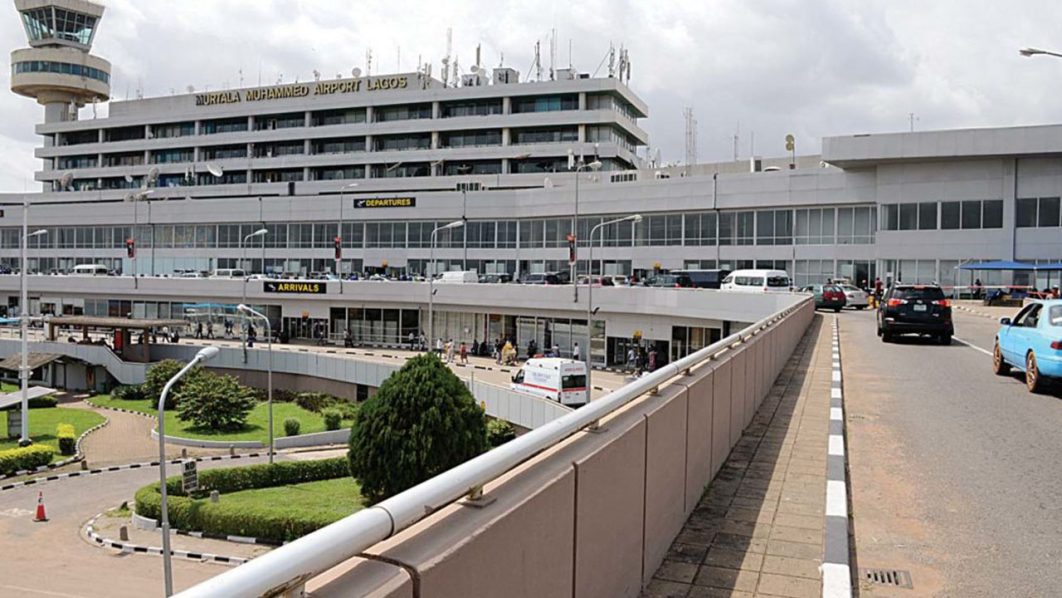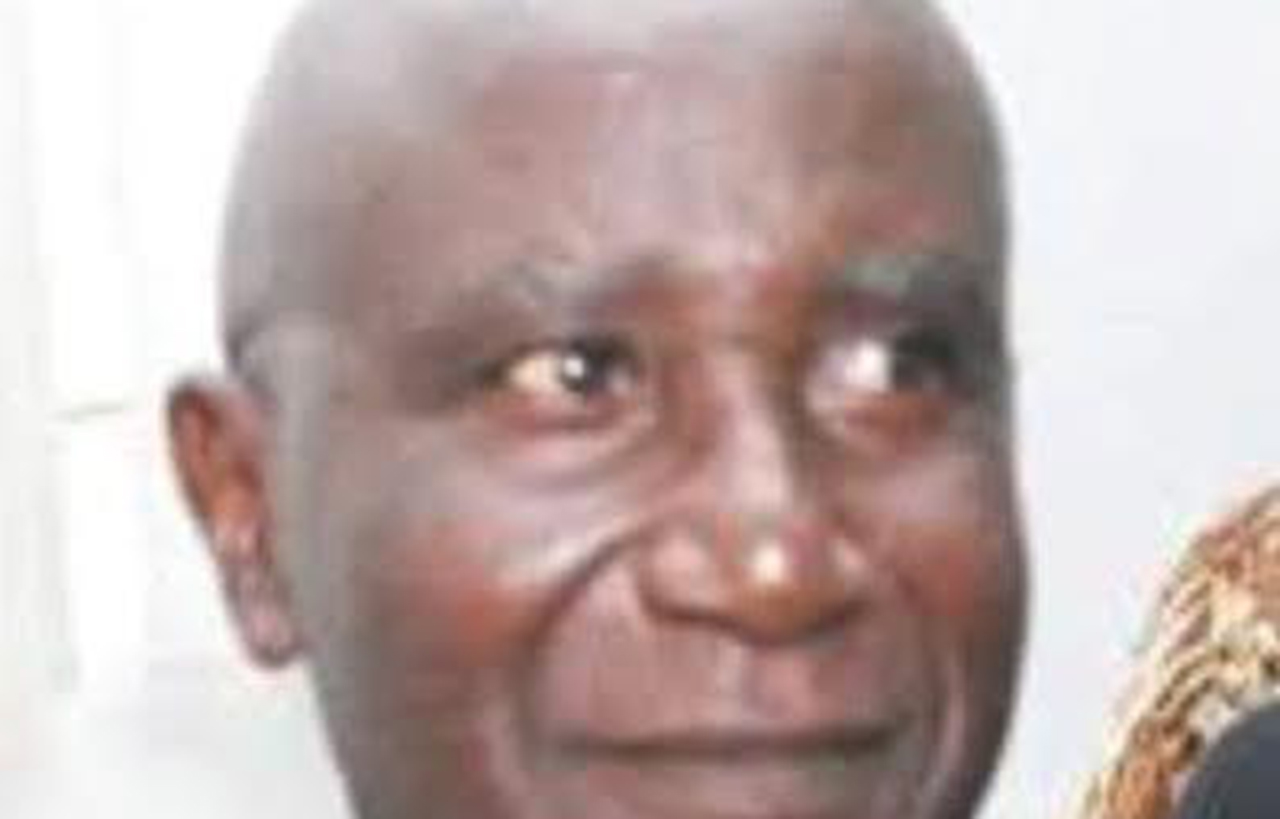 MMA
MMA
The theft of airfield lighting units at the Murtala Mohammed Airport, in the penultimate week, sent shockwaves nationwide and beyond. For stakeholders, who were equally disturbed, it was an oddly familiar sign of a system that seldom learn lessons, coupled with inefficient operatives and culpable administrators that promised so much on
security, but delivered so little, WOLE OYEBADE reports.
The national embarrassment was ill-timed, to say the least. On the eve of certification, and in an industry where safety and security are non-negotiable, how will the Nigerian authorities convince international auditors that the Murtala Mohammed Airport, Lagos is safe, when its runway has just been disposed of its valuables without trace?
Responding to the poser, aviation stakeholders were unanimous in submitting that the country, and specifically, the Nigeria Civil Aviation Authority (NCAA) already have an uphill task of keeping the facility on strong rating to avert a downgrade of the busiest international facility.
Also unsettling for some, is how the Murtala Muhammed International Airport (MMIA) still manages to remain porous and largely unmanned after the last administration placed an order for millions of dollars’ worth of surveillance infrastructure for both Lagos and Abuja airports.
Stakeholders said beyond sanctioning complicit Aviation Security (AVSEC) officials and other scapegoats, the punishment should be top-down for deterrence, just as airport handlers in the last administration have been called to account for their roles.
Petty Thieves, Invaders On The Prowl
The Lagos Airport is rarely a safe corridor. Though the flagship aerodrome that accounts for over six of the 16 million passengers that use Nigerian airports yearly, it is also the epicentre of gross inefficiency, bureaucratic bottleneck, and security breaches.
Recall that in December 2021, the fee-for-service Seymour Aviation Multi-level Car Park at the international terminal recorded multiple vandalisation of parked vehicles. Three of such were reported in less than a week!
Motorists and travellers alike complained about forced entries into parked cars, removal of car accessories and personal effects, coupled with harassment of users.
For instance, a driver, Kehinde Emiola, had parked at the facility while awaiting his principal’s return around noon. About 30 minutes later, he returned to fetch the Highlander Jeep only to find out that the side mirror and rear light were gone.
But the most bizarre thefts are on the airside, which are obviously the most restricted part of aerodromes globally.
Barely a month after the car park’s cases of stealing, suspected thieves broke into an idle Arik Air aircraft at the domestic wing of the airport and stripped it of valuable gadgets. The break-in, according to findings, left the Boeing 737 aircraft grounded without its Flight Management Computer (FMC), and other accessories.
The jet, leased from Enzis Airlines, arrived at the Lagos Airport from Port Harcourt, a night before. The Guardian learnt that the aircraft, with registration number EI-ULN, was raided between 11:00pm when the airplane was packed, and 7:00am of January 20, 2022, when the break-in was first noticed.
The Flight Management Computer (FMC) with other avionics was missing. The FMC is a fundamental component of a modern airliner’s gadgets. It is a specialised computer system that automates a wide variety of in-flight tasks, reducing the workload on the flight crew to the point that modern civilian aircraft no longer carry flight engineers or navigators. A primary function is in-flight management of the flight plan.
A source confirmed that, “there is a door underneath the aircraft where the vandals opened and got access to remove the flight management computer. It is impossible for a novice to successfully remove the flight management computer – that thing was stolen by an expert.”
Before the Arik Air incident, suspected burglars had allegedly attacked an Air Peace aircraft while taxing at the Murtala Muhammad Airport (MMA) in Lagos, eliciting a row between the operator and the Federal Airport Authority of Nigeria (FAAN).
The aircraft, a Boeing 737, was attacked, with its cargo compartment allegedly opened at 7:35 pm, prior to takeoff to Nnamdi Azikiwe International Airport, Abuja.
The alleged encroachment, The Guardian learnt, was immediately detected by the captain, who aborted the flight for a round of security checks prior to resumption of the operation. As a result, the flight was delayed for two hours.
So, when it was the turn of the runway to be robbed last week, not many stakeholders were surprised, though thoroughly embarrassed by the ugly history repeating itself.
The Runway 18R has been out of service for about two months and was awaiting repairs when its approach lights suddenly developed wings and flew away. Findings showed that it was the second theft recorded on the runway in less than a month.
Suffering Suffocation And Convulsing
When Lagos Airport opened in 1979, it was to cater for an average of 200, 000 passenger traffic a year. Without commensurate development in infrastructure over the years, Lagos Airport today accounts for about 40 per cent of annual passenger traffic in Nigeria. It also generates at least 50 per cent of aviation revenue nationwide.
Indeed, the facility that has three terminals (international, domestic and cargo) has grown from one cargo operation a week to 30 daily, while eight international flights have bolstered to 272 aircraft movements per day. Before the COVID-19 pandemic disruption, 32 international airlines flew into the busiest airport in Nigeria.
Besides the slow pace of development within, the landmass is also getting choked by loose urban development in communities that surround the facility. Several residential apartments in Akowonjo, Ajao Estate, Ejigbo, Cement/Ile Zik, Mafoluku, Oshodi, and Shasha have consistently closed-in on the aerodrome for years.
Today, competing with the airport for space are houses built on land erstwhile belonging to the airport, recently compelling the Lagos State Government and FAAN to pull down some buildings sitting on the runway threshold and posing a “security risk” to flights.
Some buildings are already on the runway path, while several others are leaning on the demarcating perimeter fence – a security no-no in international standards and recommended practices.
The International Civil Aviation Organisation (ICAO) protocol that sets the minimum standard for civil aviation in all United Nations’ member-states specified in documents 8973 that private and public structures, including roads, should have a space of at least six metres from the airport perimeter fences.
Similarly, ICAO 11.2.2.9 provides that: “Whenever possible, the ground on both sides of a perimeter fence should be cleared to establish an exclusion zone. About three metres from the fence is recommended that would remove cover for any intruder and should be kept clear of obstructions such as lamp posts, signposts, equipment, vehicles, and trees that may assist intruders to climb the fence.”
Investigations have shown that Lagos Airport has defied all these guidelines and the consequences are already here.
Million Dollars’ Worth Of Interventions
Following the discovery of a mangled body on the Runway 18R in June last year, the then Managing Director of FAAN, Captain Hamisu Yadudu, was categorical that they had almost resolved the security issues at the airport with the purchase of new surveillance system.
Yadudu said: “We know the solutions to our problems, but we must ensure that due process is followed. Additional issues arise when you must import the (solution) equipment. There is manufacturing, shipping, and other processes to follow. All of these may take you up to a year.
“I was the Director of Operations in FAAN when we realised that there was a need for total surveillance of the whole airport. I went to Munich, Germany, by the end of 2018 or so, and identified the company. They came to do lead assessment twice, marking and survey.
“They gave us the estimate for visual and thermal infrared cameras; visuals to cover the areas for a whole day – sunrise to sunset – and thermal from sunset till early morning. If a rabbit walks within 8km radius, which is 16km diameter, they will pinpoint it. The runway is 3.7km or 3.8km and we are buying about four of those cameras to cover the airfield.
“We started procurement and the (former) minister of aviation was very supportive. As of now, the procurement has been concluded and Mr. President approved it last year (2021). Part payment has already been made to the manufacturer.
“The chief of staff to the president and I went to the factory last November to ensure that what we are buying is what we are getting. The delivery will happen within the next one or two months and then installation follows. This is fully automated; it will be spanning 360 degrees,” he said.
Yadudu added that in the interim, they had already set up the manual patrol of the Lagos airport.
“The military is going around the airport facilities for improved security. This automation is not just in Lagos, but it includes Abuja Airport.
“We also bought two motorised equipment. If you have any security challenges at any airport, we will drive it there and deploy it. Inside the vehicle, we have three screens that we can use to monitor and protect the airports,” Yadudu had assured.
But barely two months of his exit from office, the entire security infrastructure has collapsed, and the purchased surveillance equipment nowhere to be found.
ICAO audit and looming downgrade
Now, the major worry is that the incident may affect the forthcoming ICAO audit of the industry, slated for August 30, 2023.
ICAO audits the aviation safety and aviation security oversight capacities of its 193 member-states. In the safety domain, these audits are carried out under the Universal Safety Oversight Audit Programme (USOAP).
Already, there are jitters that the NCAA may downgrade some of the nation’s airports over increasing insecurity and gaps in the system. Two of such aerodromes to be affected are Lagos and Abuja airports.
A regulatory official hinted that FAAN had already been told about the plan to downgrade some of the airports.
He said: “The rules are very clear and from all indications, we are already walking on a tightrope and in serious risk of a downgrade. We have held some meet¬ings with them and anoth¬er meeting would be held shortly. We cannot risk the ICAO audit.”
FAAN had earlier queried all the personnel that were on duty on the day that the runway fittings were stolen, and suspended 10 of the staffers, which include the Chief of Airport Security, Head of Department (HOD) Electrical and HOD Environment.
It was learnt that part of the airfield system was earlier stolen in May, weeks after rehabilitation work started on the runway and international flights were diverted to the domestic runway, known as Runway 18L.

The Chief Executive Officer (CEO), Centurion Securities Limited, Group Capt. John Ojikutu (rtd), said that such crime could only be perpetuated by insiders, especially some disgruntled staff of FAAN, who had access to the airside.
Ojikutu also queried the recruitment process of some of the personnel in critical areas of the airport, especially at the airside, adding that there were numerous gaps in the recruitment system.The former commandant of the Lagos Airport (in the 90s) wondered if background checks were conducted on the new employees, most especially those who work within restricted areas of the airport.
“How do we dispense the personnel at the airport? What is their career progression? Some people were eased out of the system even when they still had more years to spend in service and after easing them out, the government engaged inexperienced personnel to replace them.
“I was just informed that Senator Hadi Sirika, the immediate past minister of aviation, brought in about 300 personnel in the twilight of the last administration. This is wrong. Do these people have the required knowledge of the aviation industry? Are they trained? What about the background checks on them?
“The fact is that for you to lose one runway lighting, it will take you about two to three minutes and in a situation where we lose about 10 to 12 of them, it will take you a minimum of 30 minutes. You can’t do this without the knowledge of FAAN staff. It is still the same FAAN staff members that are stealing these facilities. The runway lighting is a line light, which is just for directing the aircraft to land.”
He also questioned the composition of the airport security committee. He regretted that the theft incident would affect the forthcoming ICAO audit of the nation’s airports and the entire aviation industry, while insurance premiums on aircraft may rise as the nation would be rated as high risk by insurance companies, with attendant higher cost of operations and airfares.
Ojikutu also blamed the NCAA for failing in effectively regulating the industry, saying that the agency had inadequate inspectors to monitor the industry.

Director of Research at Zenith Travels Limited, Olumide Ohunayo, added that the security breach and stealing of critical equipment without trace would increase the costs by airlines, lessors and other organisations.
He described the development as embarrassing, saying that it was tantamount to terrorism.
Ohunayo also accused some FAAN staff of carrying out the criminal act.
He called on the government to look inwards, warning that if not quickly checked, the industry would be in danger.
Ohunayo, however, said the incident may not affect the ICAO audit, adding that the audit leaves room for gaps, which must be closed within a specific period.
He said: “It depends on how we handle it. In any audit, there are always gaps and if there are gaps, you are given time within a specific period to fill the gaps. The effect of that gap action, which those criminals and terrorists will cause us is that operators into Nigeria now might further hike their passengers and cargo fares because there will be increased cost for insurance, cost to provide extra security around their equipment based on what has happened at the airside, which shows that security is not guaranteed.
“Principal for me, is that we must look at the management of that runway lighting. Someone puts it on, someone manages it, and someone got the contract to buy it. We need to harmonise the management of the airport runway lighting so that we don’t have two agencies on usage and management. Clearly, there is an insider threat in all these. They are some disgruntled FAAN staff, and they are putting the airport at risk, and embarrassing the entire country,” Ohunayo said.
Globally, airport security architecture is most wary of insider threat phenomenon. Insider threats refer to individuals with authorised access to airport facilities, systems and information, who misuse or exploit their privileges for illicit purposes. These threats can range from intentional sabotage and theft to inadvertent negligence that compromises airport security.
Aviation enthusiast, Sunday Olumegbon, said the insider threats would always be an issue when there are no far-reaching sanctions for compromises.
“I understand that some junior officers have been targeted for punishment for embarrassing the entire country. But that is not enough. I strongly believe that the sanction should begin with the Managing Director of FAAN for presiding over such breaches.
“Such incidents, like accidents, don’t just happen in aviation. There must have been a series of compromises of standard procedure that lead to the accident itself. By the way, it is not the first-time security has been caught pants down, and certainly not going to be the last. Let the leader take full responsibility, and see if there will be a recurrence,” Olumegbon said.






